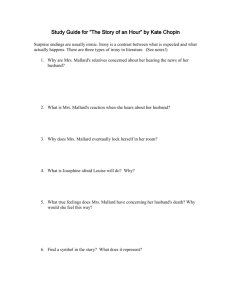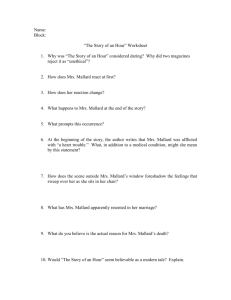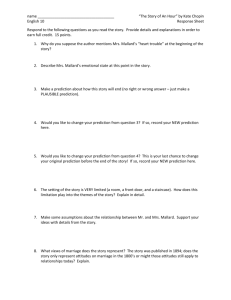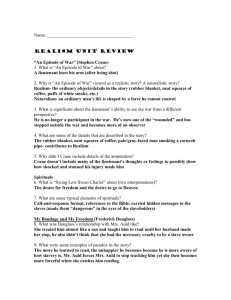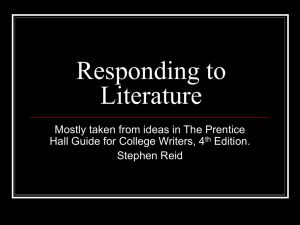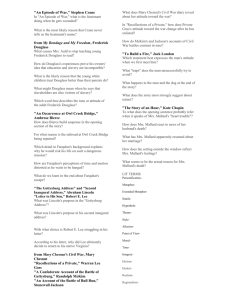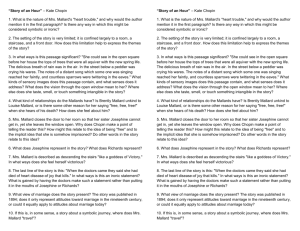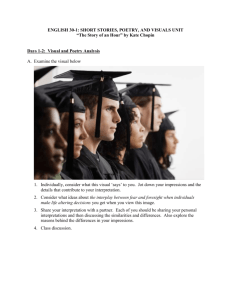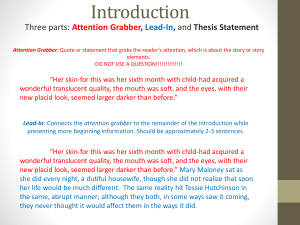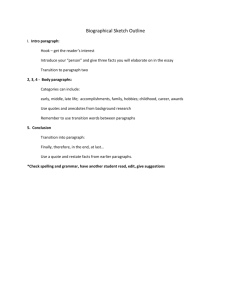The Story of an Hour: A Closer Look
advertisement
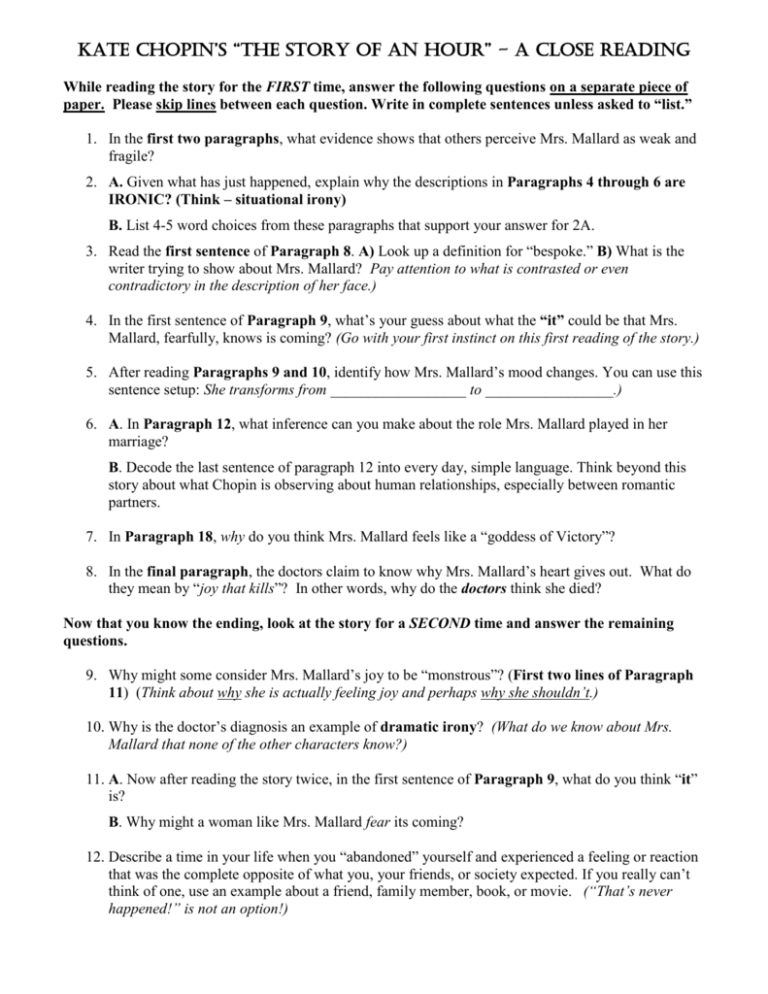
KATE CHOPIN’S “THE STOry Of AN HOur” - A Close READING While reading the story for the FIRST time, answer the following questions on a separate piece of paper. Please skip lines between each question. Write in complete sentences unless asked to “list.” 1. In the first two paragraphs, what evidence shows that others perceive Mrs. Mallard as weak and fragile? 2. A. Given what has just happened, explain why the descriptions in Paragraphs 4 through 6 are IRONIC? (Think – situational irony) B. List 4-5 word choices from these paragraphs that support your answer for 2A. 3. Read the first sentence of Paragraph 8. A) Look up a definition for “bespoke.” B) What is the writer trying to show about Mrs. Mallard? Pay attention to what is contrasted or even contradictory in the description of her face.) 4. In the first sentence of Paragraph 9, what’s your guess about what the “it” could be that Mrs. Mallard, fearfully, knows is coming? (Go with your first instinct on this first reading of the story.) 5. After reading Paragraphs 9 and 10, identify how Mrs. Mallard’s mood changes. You can use this sentence setup: She transforms from __________________ to _________________.) 6. A. In Paragraph 12, what inference can you make about the role Mrs. Mallard played in her marriage? B. Decode the last sentence of paragraph 12 into every day, simple language. Think beyond this story about what Chopin is observing about human relationships, especially between romantic partners. 7. In Paragraph 18, why do you think Mrs. Mallard feels like a “goddess of Victory”? 8. In the final paragraph, the doctors claim to know why Mrs. Mallard’s heart gives out. What do they mean by “joy that kills”? In other words, why do the doctors think she died? Now that you know the ending, look at the story for a SECOND time and answer the remaining questions. 9. Why might some consider Mrs. Mallard’s joy to be “monstrous”? (First two lines of Paragraph 11) (Think about why she is actually feeling joy and perhaps why she shouldn’t.) 10. Why is the doctor’s diagnosis an example of dramatic irony? (What do we know about Mrs. Mallard that none of the other characters know?) 11. A. Now after reading the story twice, in the first sentence of Paragraph 9, what do you think “it” is? B. Why might a woman like Mrs. Mallard fear its coming? 12. Describe a time in your life when you “abandoned” yourself and experienced a feeling or reaction that was the complete opposite of what you, your friends, or society expected. If you really can’t think of one, use an example about a friend, family member, book, or movie. (“That’s never happened!” is not an option!)
